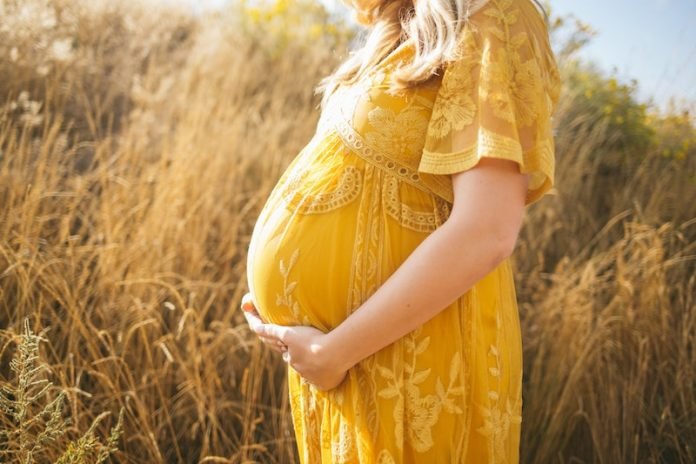
Scientists from the Norwegian Institute of Public Health found that the risk of getting COVID-19 is lower in the first four months of life if the mother is vaccinated during pregnancy.
The research is published in JAMA Internal Medicine and was conducted by Ellen Øen Carlsen et al.
Currently, no coronavirus vaccines are approved for children under five years. Since infants have a higher risk of a severe disease course than older children, they are particularly vulnerable.
If the mother can protect the child during the first months of life by vaccinating herself during pregnancy, there is a double benefit, since the vaccine protects both mother and child.
In the study, the team analyzed data from 21,643 infants born in Norway between September 2021 and February 2022. The children were followed for four months, or until 4 April 2022.
Of these infants, 9,739 were born to a mother who received her second or third dose of an mRNA vaccine (Moderna or Pfizer) during the second or third trimester of pregnancy.
These children were compared with children born to mothers who were not vaccinated before or during pregnancy.
The researchers found that when the mother was vaccinated during pregnancy, the newborn was protected against COVID-19 for the first four months after birth.
This is probably because the antibodies produced after vaccination are transferred to the fetus, and these antibodies last for a few months after birth.
Some of the effects may also be due to antibody transmission via breastmilk, or that the baby is protected indirectly when the mother has a lower risk of being infected herself, as she could be a potential source of transmission.
To assess whether the association was different for the omicron and delta variants of the coronavirus, the time period was divided into two: before and after the turn of the year.
The team found that the apparent protective effect on the infant through maternal vaccination was greatest in the period when the delta variant was dominant.
This is in line with how the vaccines work among non-pregnant women as well.
The team also found a lower risk of admission to hospital with COVID-19 among infants born to vaccinated mothers.
This is in line with the findings from the Norwegian study, which looked at infection in general and not the risk of admission to the hospital.
Since pregnant women or infants are not usually involved in testing vaccines, it is particularly important to monitor these groups, both through vaccination of pregnant women and passive transmission of vaccination effects to their newborns.
If you care about COVID, please read studies about why COVID-19 can trigger severe disease and death, and this old drug can save the life from COVID-19.
For more information about COVID, please see recent studies about a new way to prevent many COVID-19 variants, and results showing flu shot may help prevent severe COVID-19.
Copyright © 2022 Knowridge Science Report. All rights reserved.



